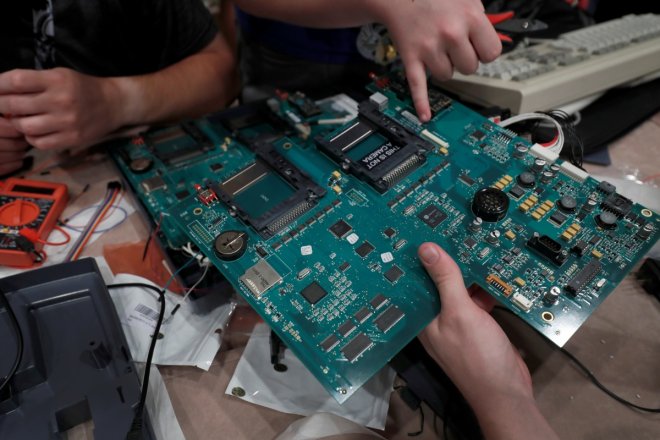
Researchers at the New York University Tandon School of Engineering have developed a new class of low-cost nanomaterial which could protect computer hardware and data physically from hackers. The new genre of unclonable cybersecurity security primitives, building units of cybersecurity, would encrypt the data physically rather than by programming.
According to the research paper published in the journal ACS Nano, the spatial randomness of atomically thin molybdenum disulfide (MoS2) has been used to make thin nanomaterial layers which are one million times thinner than a human hair. The researchers varied the thickness of each layer and tuned the size and energy band structures to develop the desired properties for the material.
Davood Shahrjerdi, Assistant Professor at Tandon School who led the research said, "At monolayer thickness, this material has the optical properties of a semiconductor that emits light, but at multilayer, the properties change, and the material no longer emits light. This property is unique to this material."
According to researchers, the thin film material could be tuned to randomly emit or not emit light. The pattern would work as an authentication key that could secure hardware components when exposed to light. This involves minimal and affordable expenditure for security.
Shahrjerdi said that his team was has accidentally come up with the solution while searching for potential practical application of the newly found random light patterns formed by the MoS2.
He said, "No metal contacts are required, and production could take place independently of the chip fabrication process. It's maximum security with minimum investment."
The research team believes that similar inexpensive nanomaterial-based security primitives can be produced in large scale and could be applied in electronic chips and hardware components.









